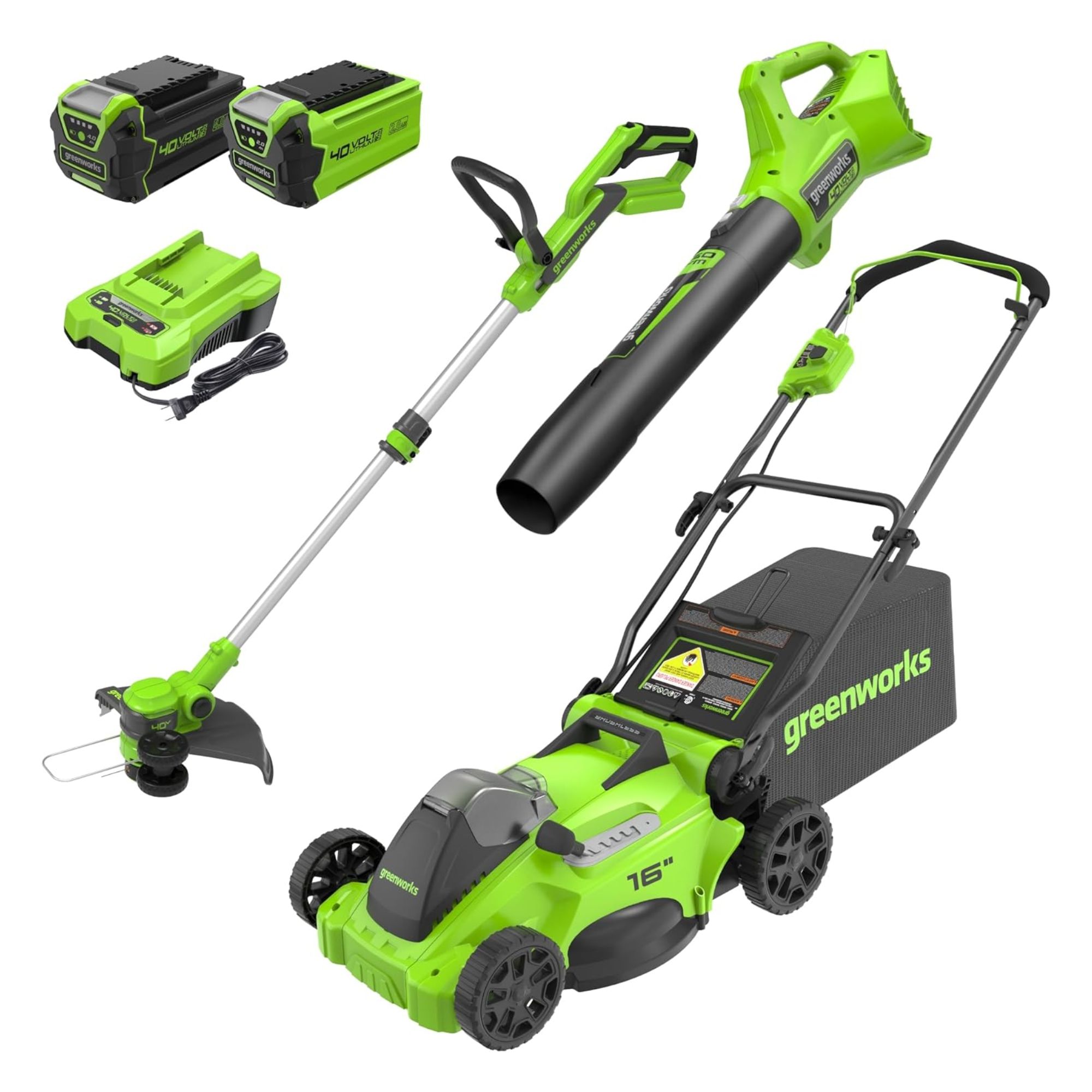Can lawnmower blades be too sharp? Expert tips on a common lawncare mistake
If your lawnmower blades are too sharp, you're harming your grass


Spring is finally back and that means the start of the mowing season. If you've looked out back at your yard and the grass feels high, you'll be revving up your mower to cut it all back down to size.
As you prepare your mower for the months of lawn care ahead, it's wise to sharpen the blades to make sure the cut is as precise as possible. If you're anything like me, you'll be tempted to hone the blades as sharply as you can to ensure that your lawn is level.
However, sharpening your lawn mower blades too much could damage your grass. What's more, it could even pose a hazard. As a gardening writer, I've used and tested dozens of the best lawnmowers in my career, so I know first-hand the dangers of over-sharpening lawnmower blades. I spoke to other experts to get the low down on over-sharpening your lawnmower blades, and how to keep your grass from any damage.
Why shouldn't your lawnmower blades be too sharp?
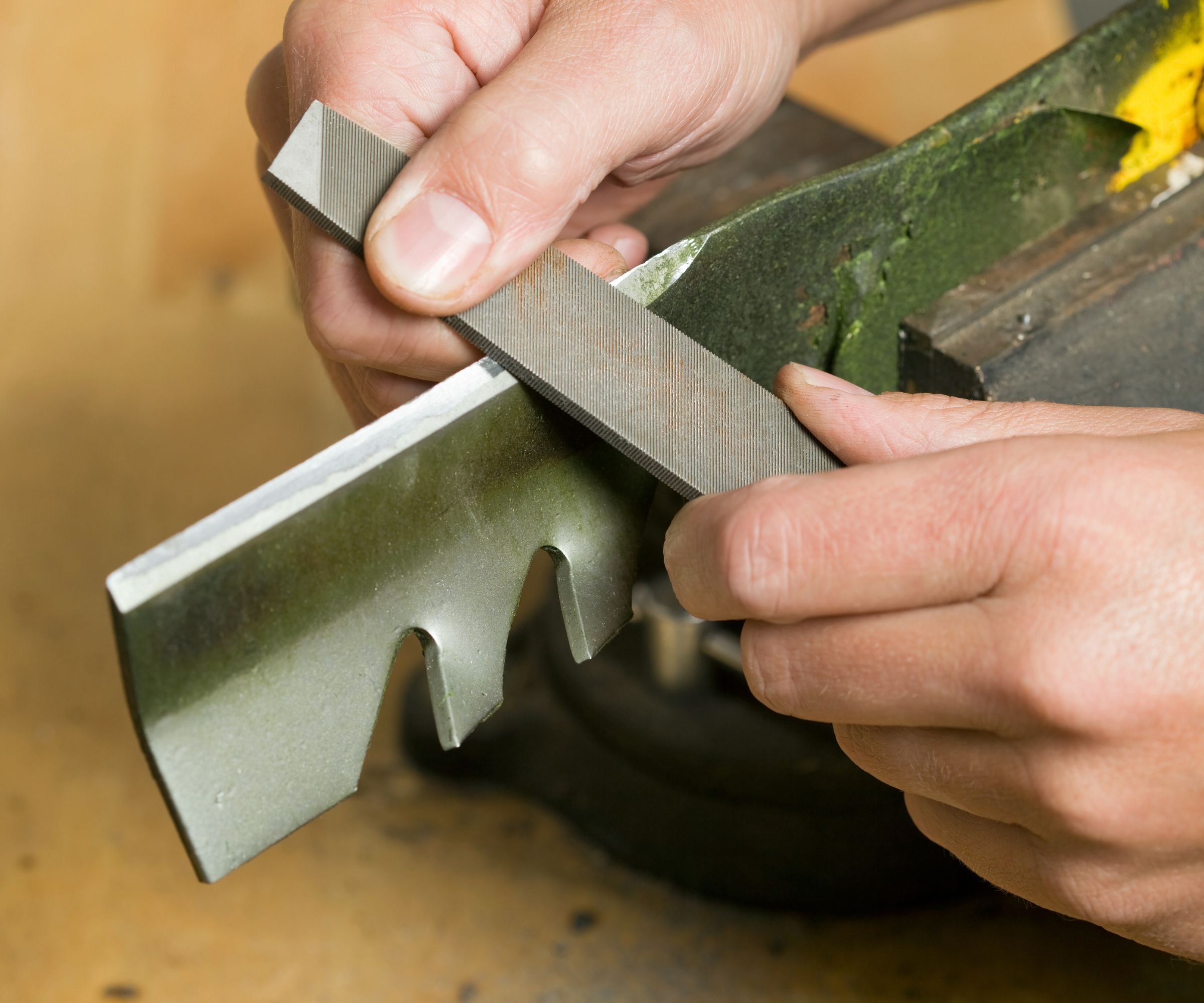
Sharpening your lawn mower blades too much is a common lawn care mistake. It's one that I used to do myself. The logic seems obvious, or at least it did to me. Surely a razor-sharp blade will make a lawn you can measure with a spirit level? Surely the sharpest possible blade makes for the neatest cut?
This is a misconception. If your lawnmower blades are too sharp, you're just making work for yourself. When the blade inevitably catches on a stone or a rock, it will be far more likely to chip or break.
Gardening expert and content editor at Homes & Gardens, Drew Swainston, told me that 'the biggest downside to lawn mower blades being too sharp is that they will get duller faster. The quicker the blades dull, the more they will need to be sharpened and that will mean a shorter overall life for your mower blades'.
All the work you just put into perfecting your blade will have been for nothing; a blade that's chipped or curled over on itself won't cut the grass. Instead, it will pull and tear at it, making for rough, unhealthy grass and a patchy lawn.
More importantly, it also poses a danger, because you might end up with chips of steel in your grass, which might be harmful for pets or kids playing on the lawn.
What's more, a sharp blade doesn't result in a noticeably closer cut. Drew adds that 'a really sharp blade will not cut better than a blade sharpened to a sufficient level - they do not need to be razor-sharp to do a good job'. You don't even need any specialist equipment. A hand file or a cheap multipurpose sharpener like this one at Amazon will do a perfectly good job.

Drew’s passion for gardening started with growing vegetables and salad in raised beds in a small urban terrace garden. He has gone on to work as a professional gardener in historic gardens and also specialise as a kitchen gardener growing vegetables, fruit, herbs, and cut flowers.
How do I know if my lawnmower blades are too sharp?
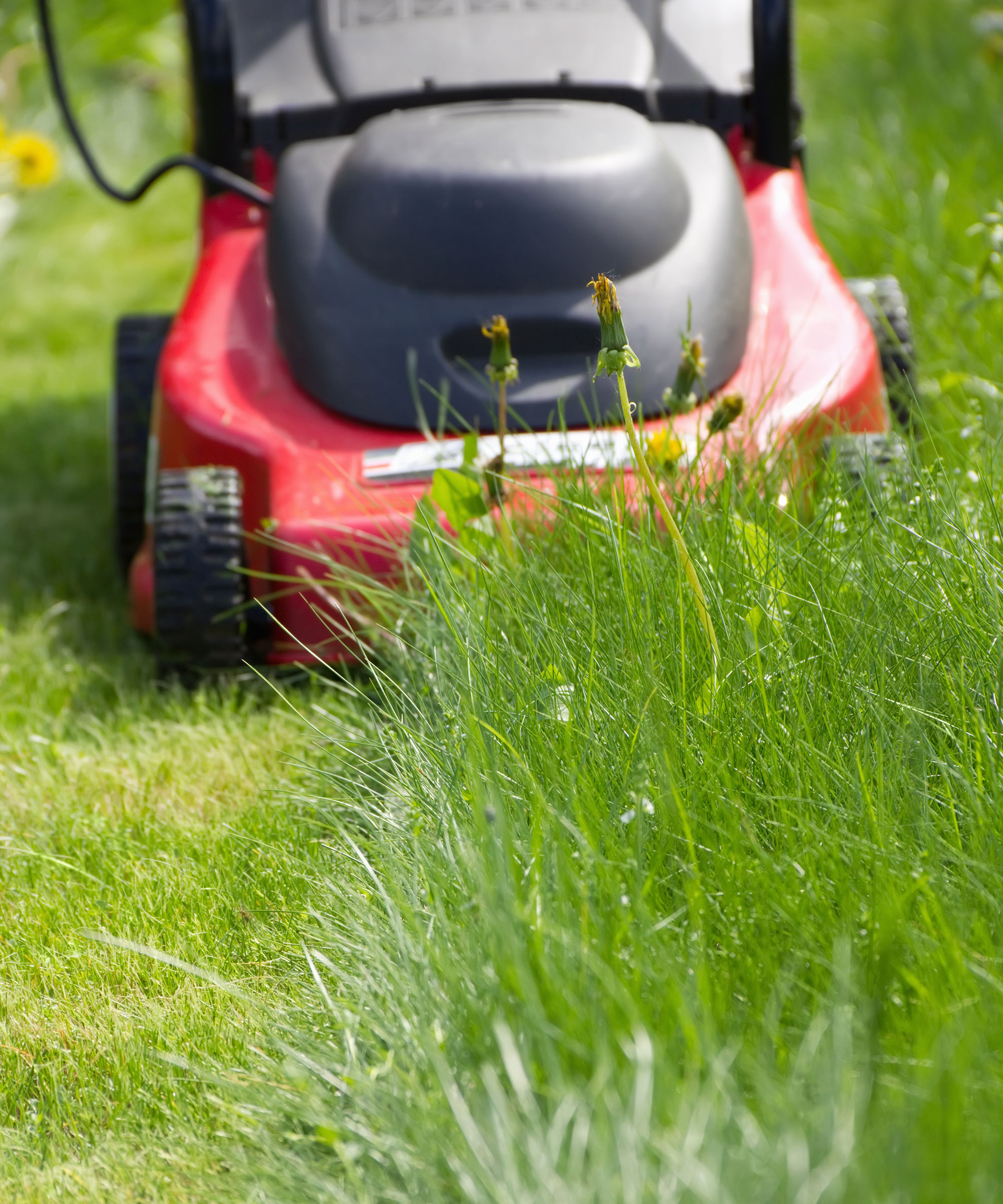
Lawn expert Bryan Clayton gave me a good tip for this. He says that 'a good rule of thumb is the blade should be sharp enough that you'd hesitate to run your finger across it, but not so sharp it slices easily through paper'.
He adds that 'you want them sharp enough to cleanly cut the grass, not so sharp you could shave with them'. Any sharper than this, and the blades are likely to chip and crack, and you're back to square one, but if they're too dull, you won't be effectively cutting your grass.

Bryan Clayton is a co-founder of GreenPal, an online platform that connects homeowners with local lawn care professionals. Born and raised in Nashville, Tennessee, Bryan developed an early interest in entrepreneurship and started his first business at the age of 13, mowing lawns in his neighborhood.
Shop lawn mowers
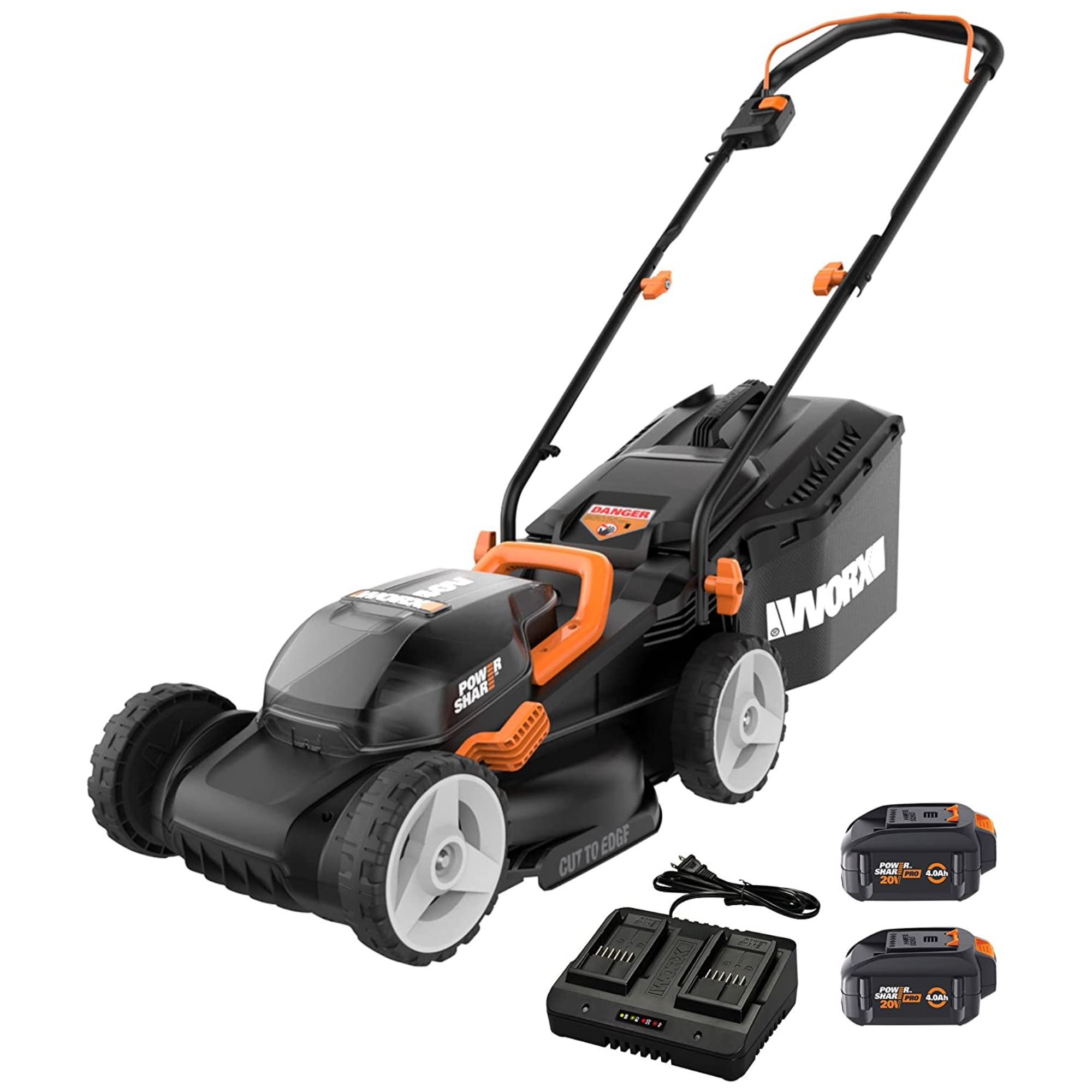
This is my go-to lawn mower recommendation. It cuts incredibly closely, it's lightweight and easy to manoeuvre, and it's surprisingly good value. It won't stand up to a top-line steel-deck mower, but if you need something inexpensive that gets the job done, you won't go wrong with this.
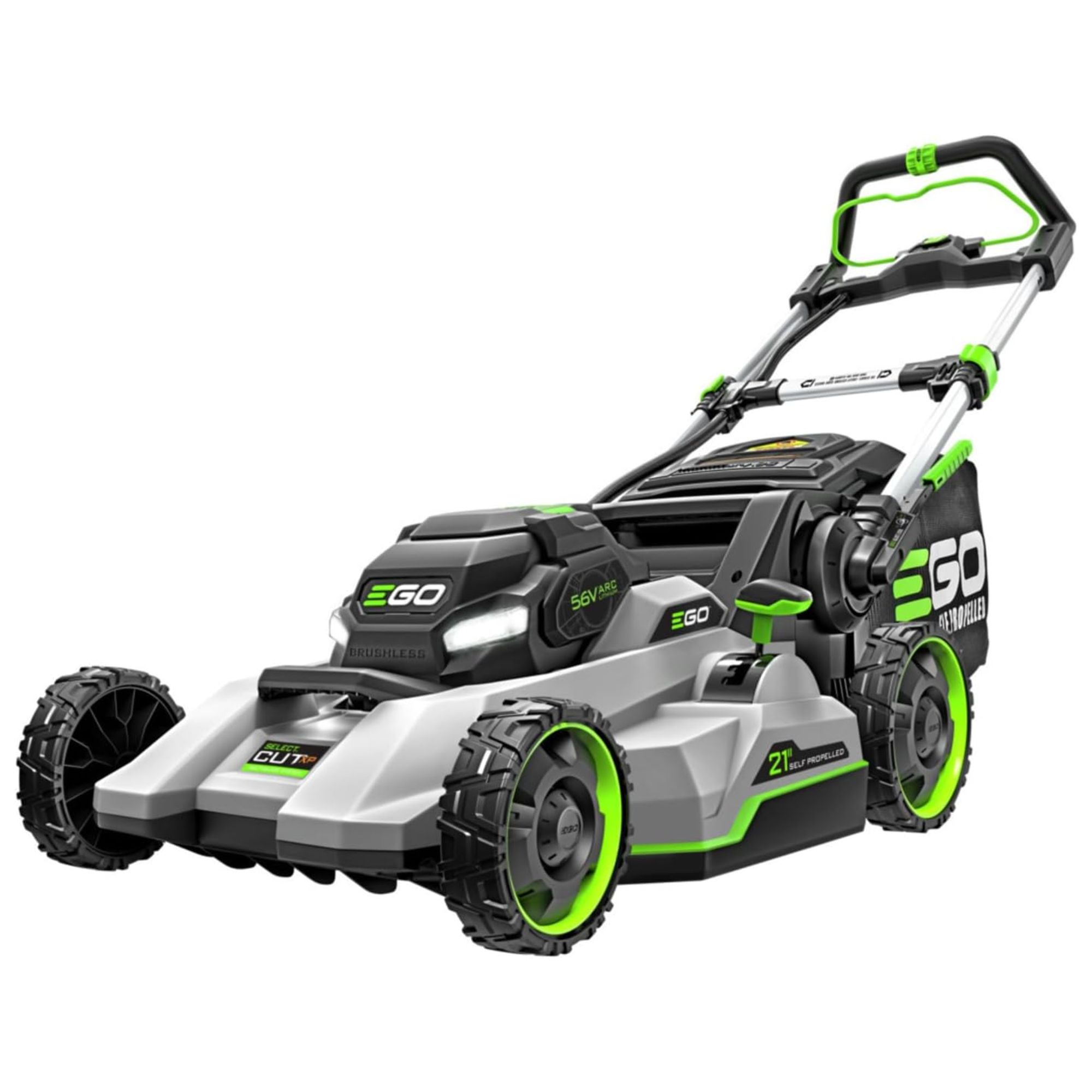
If you want to take your mowing to the next level, this is the best cordless I've ever used. Self-propelled, it's incredibly easy to use, and delivers an incredibly neat cut. It has a mulching blade that's great for ensuring a healthy lawn, and if that's not enough, it even has headlights. The trade-off here is that it's pretty expensive.
Are plastic blades on lawn mowers better?

The issues with over-sharpening shouldn't have you running off to buy a hover mower with plastic blades. I've used a few of these over the years, and while they're great for saving a little money, they're bad for the health of your lawn.
That's because plastic blades don't cut. Technically, they tear the grass. You can't tell with the naked eye, but rather than slicing through the leaves, they knock off the top. That can cause damage and fraying throughout the plant, so when summer comes and bakes the ground your grass is more likely to be yellow and brittle.
Lawn expert Bryan Clayton agrees. He says that plastic blades 'just don't cut the mustard – or the grass, for that matter. You end up tearing the grass instead of cutting it, which opens the door for disease and makes your lawn look ragged and unhealthy.'
FAQs
Can I sharpen lawn mower blades with a file?
Yes, you can sharpen lawn mower blades with a hand file. You can also use an angle file or a a dremel.
What's the right angle for sharpening lawnmower blades?
Sharpening lawn mower blades isn't much different to sharpening a knife. You need to come at the blade from a roughly 45 degree angle.
There are lots of things you can do now to get your lawn into perfect shape for the summer months. Knowing when to fertilize a lawn in spring may also be beneficial if you think your grass is in need of a quick nutrient boost.
Sign up to the Homes & Gardens newsletter
Design expertise in your inbox – from inspiring decorating ideas and beautiful celebrity homes to practical gardening advice and shopping round-ups.

As a gardens and lifestyle contributor, Alex makes sure readers find the right information to help them make the best purchase. Alex got his start in reviewing at the iconic Good Housekeeping Institute, testing a wide range of household products and appliances. He then moved to BBC Gardeners’ World Magazine, assessing gardening tools, machinery, and wildlife products.
-
 Diane Keaton's living room is proof that 'symmetry in interior design' is far from dated – this concept is still ingrained in our philosophy, but there's a twist
Diane Keaton's living room is proof that 'symmetry in interior design' is far from dated – this concept is still ingrained in our philosophy, but there's a twistSymmetry is a design trick used to create smart-looking spaces
By Jennifer Ebert
-
 How can you make an outdoor kitchen feel more luxurious? Designer tips on making this hardworking space extra opulent
How can you make an outdoor kitchen feel more luxurious? Designer tips on making this hardworking space extra opulentDiscover the strategies the experts use to give an outdoor kitchen luxury style
By Sarah Warwick
